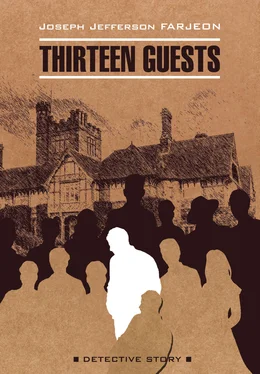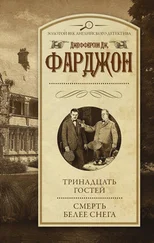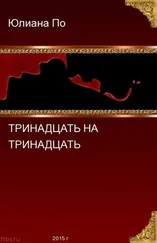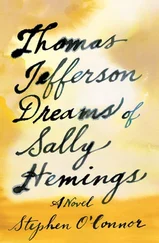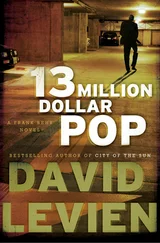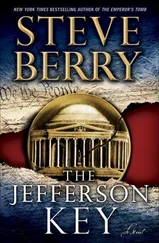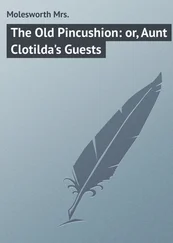Some one was moving in the path. He dashed forward and grabbed. Sheer instinct had caused the sudden action. A hand banged him in the chest, and he staggered. When he had recovered, he was alone.
As he came to the end of the flagged path a figure met him off the edge of the lawn.
“Good-evening,” said the figure.
Pratt regarded the face that rose abruptly before his, and smiled.
“Good-evening, Mr. Chater,” he answered.
“That’s a good guess,” replied Chater. “We’ve not met.”
“No, that’s how I guessed,” responded Pratt. “Process of elimination. You came on the 5.56, didn’t you?”
“That’s right.”
“You’ve not been here before?”
“No, my first visit. Rather a nice place, isn’t it? I’m just having a stroll round.”
“I’m afraid you won’t see much in this darkness.”
“Enough to get one’s bearings. Where does this lead? Is that building over there the stables?”
He was gazing along the flagged path.
“No, that’s a studio,” answered Pratt.
“Oh, yes, there’s an artist here, isn’t there?”
“Well—he calls himself an artist. Are you interested in art, by any chance?”
“Me? Not particularly. Who’s the fellow?”
“What fellow?”
“The artist?”
“Leicester Pratt.”
“Oh, Leicester Pratt! He’s rather the craze just now, isn’t he?”
“Some people like his work.”
“And some don’t?”
“They all pay big prices for it.”
“Then I don’t suppose he worries! Is he painting anybody here?”
Pratt paused for a second before replying.
“I have just been looking at a picture he is painting of somebody here.”
“Good?”
“He thinks so.”
“Who’s it of?”
“Lord Aveling’s daughter.”
“Oh, not his wife.”
The remark was made carelessly, but Pratt realised that his face was being watched, and he took great pains that it should convey nothing as he answered dryly:
“I said his daughter.”
“So you did,” smiled Chater. “Rather an attractive girl, though I’ve only seen her for a moment. Isn’t she just going to be engaged or something?”
“Do I follow you?”
“Eh?”
“The ‘something?’”
Chater’s smile augmented to a laugh, and his teeth gleamed in the dusk.
“Don’t mean to insinuate anything,” he said. “It’s Earnshaw, isn’t it?” As Pratt did not respond, he added, “Hope I’m not asking too many questions; but when you’re a sort of stranger—well, it’s helpful to know things. Often saves you from making a faux pas . Curiosity’s not one of my natural vices.”
“That idea would never occur to me, Mr. Chater,” observed Pratt ironically.
The irony made no impression.
“I admit I would rather like to see that picture, though,” Chater went on. “Is one allowed in the studio?”
“I’m afraid it’s locked,” replied Pratt.
“Locked? Then how did you get in?” inquired Chater.
“I have the key,” said Pratt, “and I locked it.”
“That sounds as if you’re Leicester Pratt.”
“I am.”
“You might have warned me. Now I shall spend the rest of the evening trying to recall our conversation to see if I’ve put my foot in it! Or p’r’aps you’ll save me the trouble? Have I?”
There was something cheap, almost insulting, in Chater’s coolness, which appeared to have been deliberately acquired, whereas the sangfroid of Pratt was a natural inheritance. The artist answered:
“You have not even put your foot in my studio. Or—have you?”
“What, put my foot in your studio?” exclaimed Chater. “How could I have, if it’s locked?”
“It wasn’t locked ten minutes ago.”
Chater’s expression changed slightly. It was still cool, but a watchful quality entered into it.
“Ten minutes ago I was saying good-evening to a maid,” he said.
A clock struck seven as he spoke. It was a clock over the stables.
“I see,” murmured Pratt. “Then you have not been out here ten minutes?”
“I’d just come out when I met you.”
“Did you meet anybody else?”
“Excuse me, Mr. Pratt, but what’s all this about?”
Pratt shrugged his shoulders.
“Nothing important,” he replied. “See you at dinner.”
Chater turned his head as Pratt began to resume his way.
“Do we like each other?” he asked.
“Not a bit,” answered Pratt.
That was also Chater’s conviction as, after watching the artist disappear into the house, he himself turned back to the flagged path and walked towards the studio. If Pratt had not locked the studio door, he would not have seen the thirteenth guest at dinner.
Bultin was fixing an over-large white tie round his collar when Pratt rejoined him. Bultin liked large things. His soft felt hat was of Italian dimensions, although it came from a shop in Piccadilly.
“Enjoy your walk?” asked Bultin, without turning his head.
“Immensely,” answered Pratt, throwing off his coat, “though not quite as much as Edyth Fermoy-Jones would have enjoyed it in my place. ‘Why?’ the famous journalist refused to inquire. Because, my dear Lionel, Edyth Fermoy-Jones would have made a most sensational discovery, and would have torn up the first chapter of that novel of hers.”
“The one thing I have never learned to do without an effort,” said Bultin, “is to tie a white tie.”
“And she would have started her story afresh, you vile pretender! Yes, Lionel, I made a mistake when I described her plot to you just now. It will certainly contain the marvellous necklace round the neck of the attractive widow—a double rope of pearls worth—you like to quote figures, don’t you?—worth every penny of ten thousand pounds. You can make it twenty, if you like. Edyth Fermoy-Jones will make it fifty. But it won’t be stolen! Not, at least, for several chapters—till her editor has put the wind up her by shouting for more drama. No, a picture will be mutilated, instead. Less hackneyed idea, isn’t it? With first-rate possibilities for development, and an unimpeachable setting. Studio—model’s screen—artist’s lay figure—strange pictures on large easels—somebody hiding behind one of ’em—” He paused, arrested by a thought, then continued: “The mutilated picture in Miss Fermoy-Jones’s studio will be of a baron’s daughter. Value—no, price—one thousand guineas. Smeared over with paint, my boy. Smeared over with paint.”
“I thought that was the fate of all pictures,” remarked Bultin.
“The fate is bearable when there is only one artist,” answered Pratt. “But here there are two. The first artist’s smear has been smeared out by the second. I wonder how Epstein feels when people daub his statues? Scornful? Callous? Cynical? Or just bloody angry? I must ask him.”
Bultin’s nose for a true scent was as accurate as any hound’s. He paused for a moment in his struggle with his tie.
“Like that?” he said quietly.
“I don’t suppose, Lionel,” replied Pratt, kicking off his shoes, “there’s a soul alive without his vulnerable spot. An elephant’s got one behind his ear. I’ve got one behind my paint. Where’s yours?”
“You’ll have to paint me, as you paint other people, to find out,” answered Bultin, almost humanly.
“Perhaps I’ve found out already, without using my brushes.”
“Or perhaps I haven’t got one? Or perhaps the only individual who will ever find it out is the unpleasant old man with the scythe.”
“Death,” mused Pratt. “I’m not thinking of Death. That’s miles away....”
He stopped abruptly. Bultin loosened his tie, pulled it off, and began again.
Читать дальше
